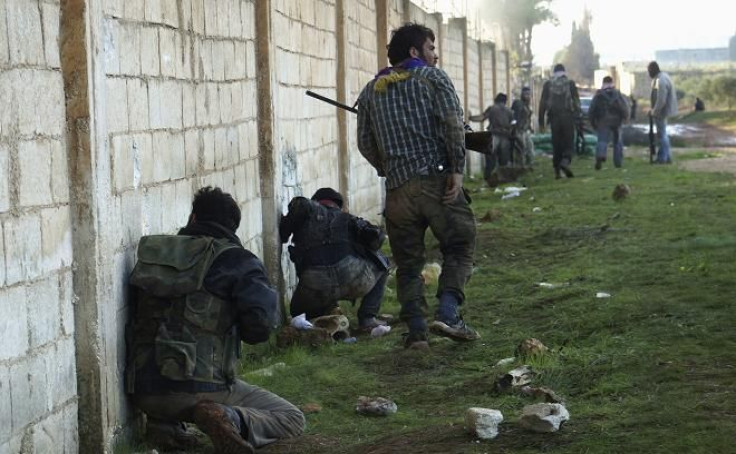Assad's End Of Days? Even Russia Predicts Downfall Of The Syrian Regime

Russia was once one of the staunchest allies Syria had in the world and on the U.N. Security Council. But on Thursday, Deputy Foreign Minister Mikhail Bogdanov admitted that Syrian President Bashar al-Assad was likely to fall, hammering yet one more nail in Assad's political, if not physical, coffin, and potentially stripping him of an exit strategy.
“We have to face up to reality: The trend is that the Syrian regime, the government is increasingly losing control, losing more and more territory,” Bogdanov told the Public Chamber, the legislative oversight body in the Russian government, in Moscow. “Sadly, a victory by the Syrian opposition cannot be ruled out.”
Bogdanov added that the opposition army has been receiving quite a bit of physical and political help in recent days and weeks, the English-language RIA Novosti reported, especially after the U.S., France, Britain and the Friends of Syria international coalition officially recognized the opposition as the legitimate voice of the Syrian people. This makes Bogdanov the latest world leader, along with NATO Secretary General Anders Fogh Rasmussen, to predict the end for Assad.
“They are saying that victory is just around the corner … and saying they are in control of 60 percent of territory,” Bogdanov said, referring to the Syrian opposition.
Another Russian government minister, Alexei Pushkov, bemoaned on Twitter that the opposition's recognition by the Friends of Syria "gives up on any attempts to find a political solution. The only option now is war," the English-language Russia Today translated. He also warned that opposition forces were threatening to attack Russian and Ukrainian embassies in Damascus. "The U.S. sends special operations forces in such cases," he wrote.
The U.S. State Department seized on the Russian admission.
"We want to commend the Russian government for finally waking up to the reality and acknowledging that the regime's days are numbered," spokeswoman Victoria Nuland said, according to Reuters. "The question now is, will the Russian government join those of us in the international community who are working with the opposition to try to have a smooth democratic transition?"
In Marrakech, Morocco, where his new coalition won world recognition as the legitimate leadership of Syria, rebel political leader Mouaz al-Khatib said he believed Russia, ally and arms supplier to the Assad dynasty since Soviet times, was looking for ways out of its support for a lost cause.
"I believe that the Russians have woken up and are sensing that they have implicated themselves with this regime, but they don't know how to get out," he told Reuters. He held them "particularly responsible" for arming Assad but, in a bid to move the Kremlin, said Moscow need not "lose everything" in Syria if it changed tack.
On Sunday, Russian Foreign Minister Sergei Lavrov told the ITAR-TASS news agency that Russia was not in talks with Assad about an exit strategy, but on Thursday ITAR-TASS announced that a Syrian delegation had arrived in Moscow, and that Lavrov was expected to receive them.
In Brussels on Thursday, Rasmussen also told the press that he believed "the regime in Damascus is approaching collapse."
"I think now it's only a question of time," Rasmussen told the press conference. "I urge the regime to stop violence, to realize what is the actual situation, and initiate a process that leads to the accommodation of the legitimate aspirations of the Syrian people."
More than 30,000 people have died in the conflict that began in March 2011, and estimates say around 2 million people have been displaced from their homes within Syria. The U.N. estimates that the number of refugees who have fled the country is expected to top 700,000 by the end of 2012.+
© Copyright IBTimes 2024. All rights reserved.












